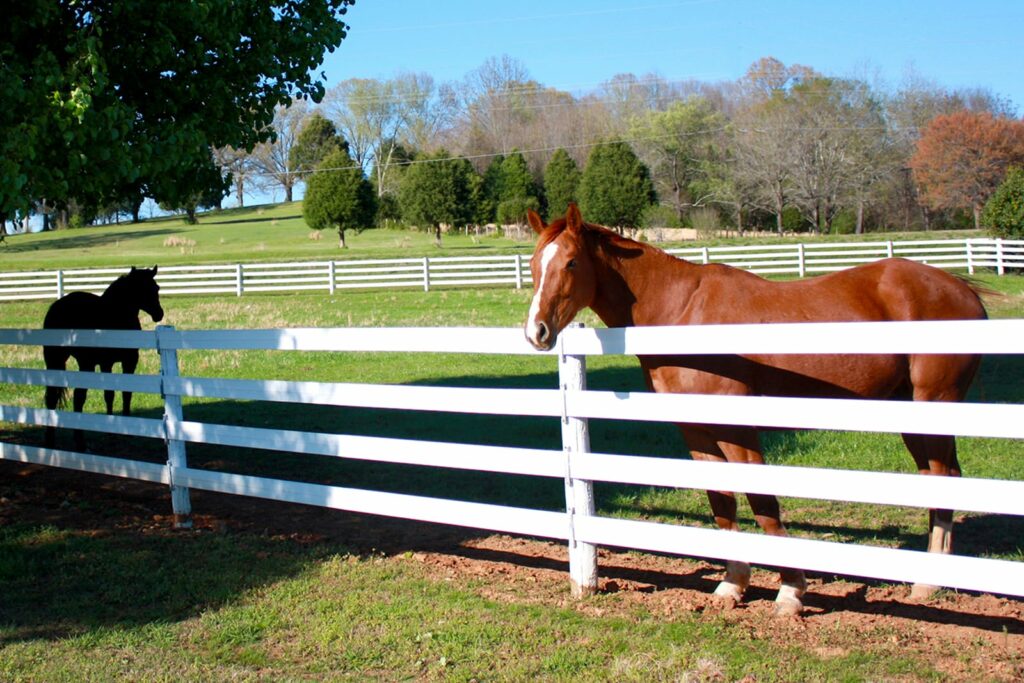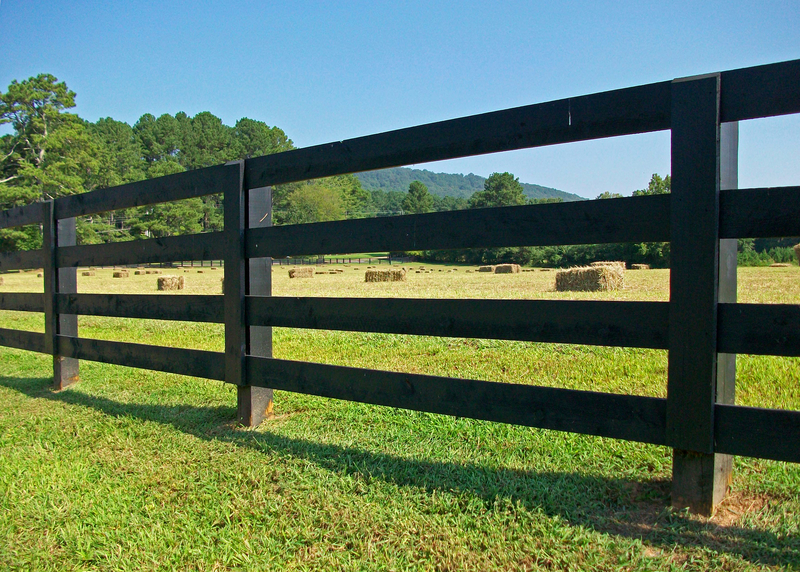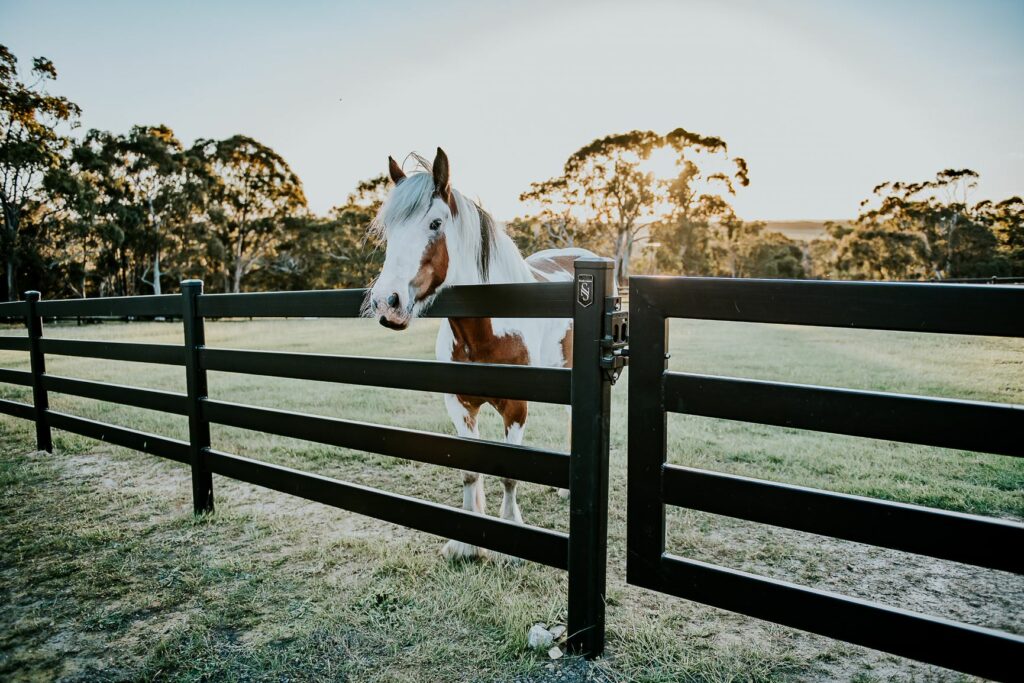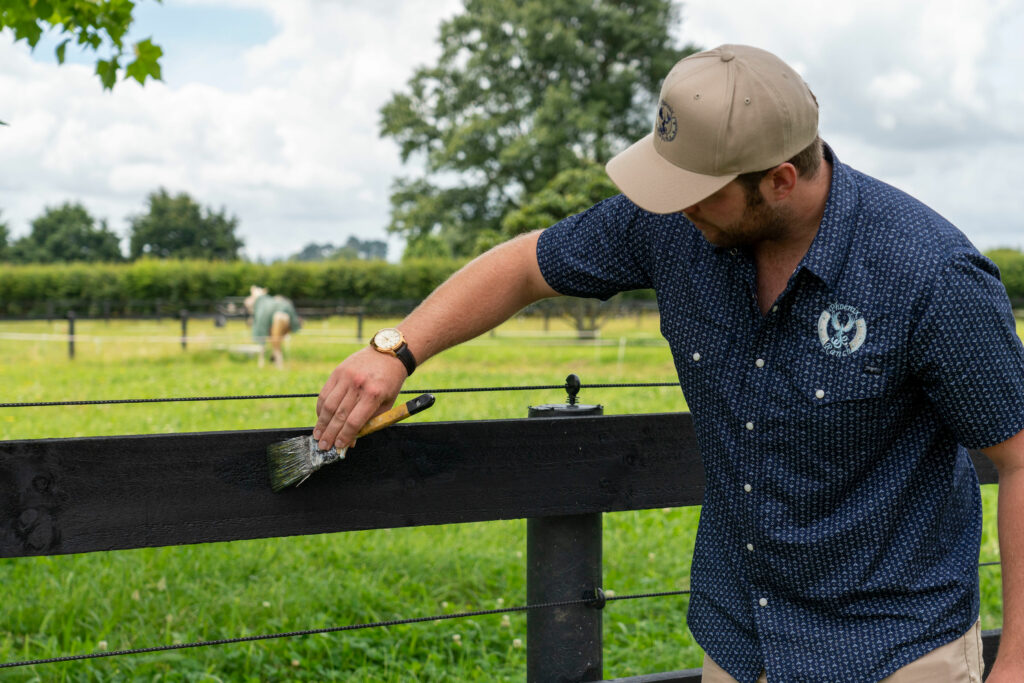Stock & Noble
Hardwood Fence Posts vs. Steel Fence Posts: A Comprehensive Comparison
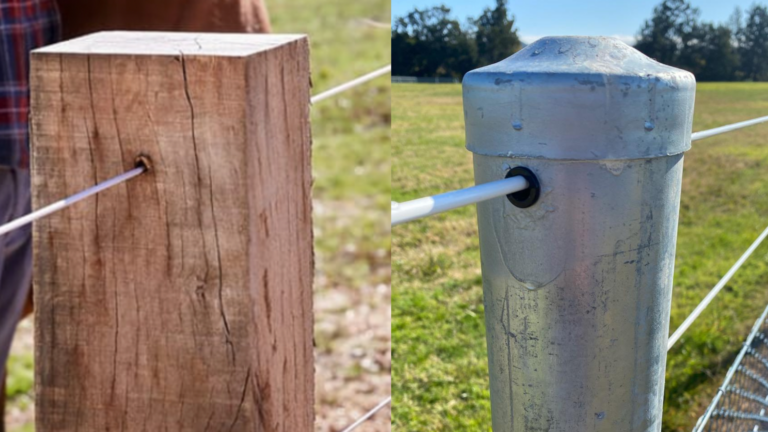
- BY Tripti Kakkar
Choosing the right fence post material is crucial for any fencing project. It ensures the long-term stability and effectiveness of your fence. The post provides strength and security to the overall structure. Making the wrong choice in fence posts or overlooking proper installation can result in a weak or unstable fence, compromising its ability to contain livestock, provide security, or define property boundaries. Therefore, it is crucial to understand how to choose the most suitable fence post for your specific property needs.
If you have already explored various options for fence posts and are interested in a more in-depth comparison between Hardwood and steel fence posts, you’re in the right place.
At Stock & Noble, we are committed to offering high-quality fencing materials to properties across Australia and New Zealand. We understand the importance of selecting the right fencing materials for your property. While we proudly provide the Hogan Plastic Fence Post as one of our offerings, we have years of expertise and experience in fencing to provide you with comprehensive and factual information about the available solutions. Thus enabling you to make an informed decision.
In this blog post, we will compare hardwood and steel fence posts based on various factors such as product specifications, quality, performance, longevity, cost, and installation. By understanding the differences between these two options, you can make an informed decision that suits your specific needs.
While timber fence posts are versatile and can be used for various fencing applications, this article will specifically focus on the comparison between hardwood and steel posts. In particular, we will examine Hardwood Class 1, which is known for its exceptional durability. This type of hardwood has a dense grain structure, providing excellent strength and longevity, with a lifespan of more than 25 years. It is widely regarded as one of the best hardwood options available for fencing.
On the other hand, steel fence posts are typically square or round and have a wall thickness of approximately 3-4 mm. These posts are usually galvanized for enhanced corrosion resistance. In the context of this article, when we mention steel fence posts, we are referring to galvanised square or round posts.
Comparison of Usage and Application: Hardwood Fence Posts vs. Steel Fence Posts
Hardwood timber fence posts are commonly used in post and rail fencing, as well as end and corner assemblies. They provide versatility in various fencing situations and can be used with other fencing types such as wire, mesh, or flexible rail.
Steel fence posts are also suitable for intermediate, corner, and end assemblies and are commonly used with cattle rail, flexible rail, wire, and mesh fencing.
One point of difference is that steel fence posts are often used with timber rails. It adds strength to the entire fencing since unlike timber fence posts, steel posts aren’t susceptible to mould or termite infestation which can start from the ground beneath.
Hardwood fence posts can be used with steel rails, but they might not match your expectations aesthetically.
Comparison of Specifications: Hardwood Fence Posts vs. Steel Fence Posts
Hardwood fence posts come in various sizes, ranging from 100mm x 100mm to 300mm x 300mm, with square or rectangular shapes. Lengths typically range from 1.8m to 2.4m, but custom sizes are available.
Steel fence posts, on the other hand, usually come in 80 or 100 NB diameter with with an overall diameter of approximately 115mm. Lengths can range from 1.8m to 3m and can be cut to desired sizes.
Both can be customised as per requirement.
Comparison of Strength: Hardwood Fence Posts vs. Steel Fence Posts
Over time, steel fence posts tend to be stronger than hardwood timber fence posts. While timber will decay and break down over time, steel remains sturdy once it is installed.
Timber fence posts are susceptible to factors such as rot and mould, which can affect their strength. In contrast, steel fence posts are only susceptible to rust, which takes place above the ground where it can be managed. This helps the section below the ground remain strong and uncompromised.
You can learn more about how to manage rust on steel posts and rail fences.
Comparison of Performance: Hardwood Fence Posts vs. Steel Fence Posts
Both hardwood and steel fence posts demand time, effort and money to maintain their appearance. To look good, they need to be painted and regularly maintained.
Hardwood Class 1 timber is known to be protected against termites due to its tight grain structure, while all kinds of steel are impervious to termites.
Both materials provide similar performance and quality when properly maintained.
Comparison of Looks: Hardwood Fence Posts vs. Steel Fence Posts
The choice between the looks of hardwood and steel fence posts depends on personal preference and the desired aesthetic.
Hardwood fence posts offer a traditional, authentic look, particularly in post and rail fences.
Steel fence posts provide a more streamlined and modern appearance., due to their thinner structure.
The use of timber rails with steel posts allows for a balance between a timber look and protection against natural rot.
Comparison of Animal Safety: Hardwood Fence Posts vs. Steel Fence Posts
Steel fence posts, with their rounded corners and smooth edges, eliminate the risk of splinters or sharp edges that could potentially harm horses. In contrast, timber posts have square edges that can weather over time, leading to the formation of cracks or splinters that may pose a risk of injury to horses.
Both hardwood and steel fence posts offer minimal flexibility due to their inherent strength. If a horse collides with either type of post, the outcome will be similar in terms of impact.
However, Premium Steel post and Rail fencing is specifically designed to be horse safe. If you’re looking to build steel post and rail fencing on your property, it’ll be worth learning how safety can be achieved with steel fencing.
One common issue with horses is cribbing, where they gnaw on fences. Hardwood fence posts can attract horses to engage in cribbing behaviour, as they may find the taste or texture appealing. Conversely, steel fence posts do not hold the same allure for horses, effectively limiting their cribbing tendencies. Therefore, steel posts can serve as a deterrent to cribbing behaviour, promoting better overall horse health and reducing the risk of fence damage.
Comparison of Cost: Hardwood Fence Posts vs. Steel Fence Posts
The cost of hardwood fence posts can vary depending on the specific type of hardwood and the size required.
Cost of Hardwood Fence Posts
Iron Bark class 1 125 x125mm post 2.1m – $84.00, Iron Bark class 1 125 x125mm post 3m – $120.00.
Approximate price range of Hardwood Fence Posts is $85 – $120
Cost of Steel Fence Posts
100Nb medium galvanised post 2.1m – $97
100Nb medium galvanised post 3m – $125.00.
Approximate price range for Medium Steel Galvanised fence posts is $97 to $130
Comparison of Installation: Hardwood Fence Posts vs. Steel Fence Posts
Both steel and hardwood fence posts can be easily installed, whether as a DIY project or by a fencing contractor.
Steel fence posts are slightly lighter and easier to handle and ram into the ground. The hollow centre of steel posts makes installation more straightforward compared to bulky hardwood timber.
Fencing contractors are familiar with the installation of both Hardwood and steel fence posts.
Comparison of Availability: Hardwood Fence Posts vs. Steel Fence Posts
Steel fence posts are readily available, while the supply of hardwood fence posts can fluctuate depending on natural events such as bushfires or floods.
Authentic hardwood timber may require sourcing from specific sawmills, resulting in longer waiting times for delivery.
The difference in Environmental Concerns: Hardwood Fence Posts vs. Steel Fence Posts
Hardwood fence posts are sourced from our natural resources. Steel fence posts are fully recyclable, making them an environmentally friendly alternative.
While hardwood fence posts can also be recycled and repurposed, steel is more sustainable in the long run.
Hardwood Fence Posts vs. Steel Fence Posts: Which fence post is best for my property?
You want to build a beautiful property and want to choose the best fence post between steel and hardwood.
Now you know the choice of fence post material depends on factors such as the type of fence, availability of materials, and project timeline.
Choose Hardwood fence posts:
- If you have access to superior quality hardwood and you desire a traditional-looking fence, but are prepared for higher maintenance over its lifetime.
- If you specifically want a 3-rail mortised fence, timber posts are a better fit as they work best in that configuration.
Choose Steel fence posts:
- If you prioritize low maintenance and a modern aesthetic
- If you simply want a front-facing fence, you can consider using steel posts with timber rails to achieve the desired look.
- If you want a fully recyclable product.
Both timber and steel posts can be customised to fit any length, shape, size, and colour requirements. While steel paint may be more expensive, it offers better coverage as it is not porous like timber. Steel paint does not soak in and spreads further, resulting in a longer-lasting finish.
Ultimately, the decision between timber and steel fence posts depends on your priorities, the specific requirements of your project, and the overall aesthetic you wish to achieve. Another important factor is the type of fencing you plan to attach to your fence posts. Taking the time to learn about the best combinations of fences and posts for your property will prove beneficial.
If you have further inquiries regarding the quality, suitability, installation, and cost of various fence posts, it is recommended to reach out to our team of fencing experts. They possess the knowledge and expertise to address all your questions in depth and guide you towards the right path to realise your vision of a beautiful property.
